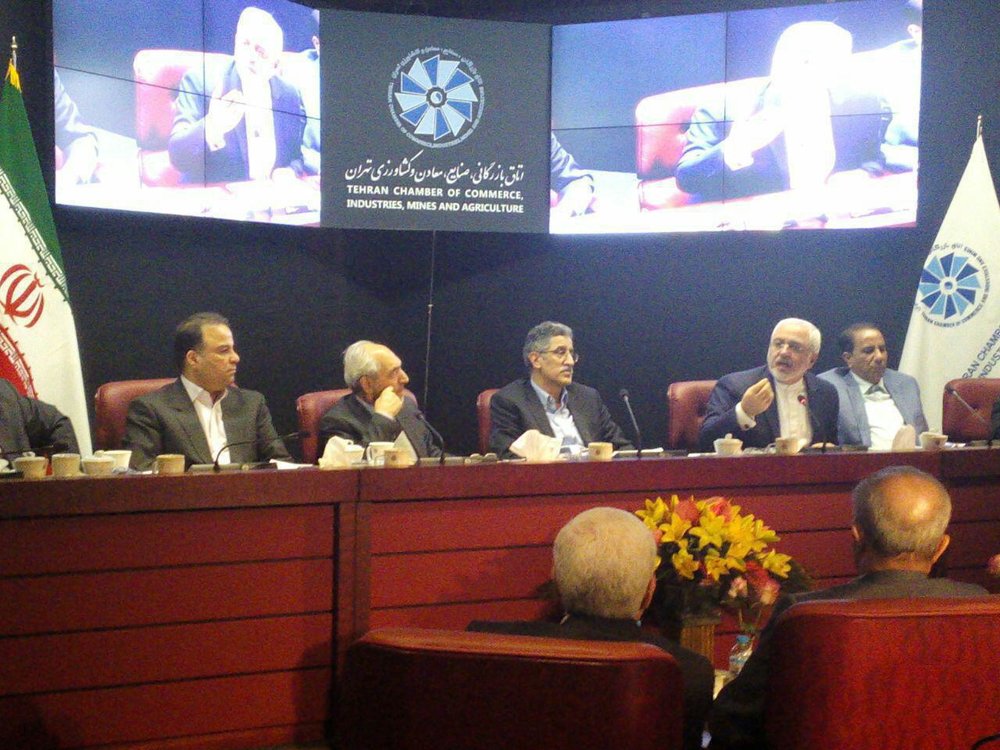Zarif talks sense on sluggish banking

TEHRAN – Iran’s Foreign Minister Mohammad Javad Zarif launched a strong defense of the 2015 international nuclear deal with world powers, blaming long parting from the global banking system as one cause for the sluggish opening in international banking ties after the accord.
Zarif was making the comments in a speech to members of the Tehran Chamber of Commerce, Industries, Mines and Agriculture on Tuesday.
“We weren’t involved in banking developments that happened in the aftermath of the 2008 financial crisis and new regulations introduced thereafter,” he explained.
While the nuclear accord removed all banking prohibition and authorization regimes on financial transfers to and from Iran and sanctions on banking activities, some banks are still skeptical it is now safe for them to restore trade ties with the country.
Large European banks cite concerns over falling foul of fines by the U.S. and have largely shown reluctance to work with Iranian counterparts with full capacity.
Iran’s Zarif says it takes time for normalization of banking relations with the international community given that Iran has been away from the system for years, thus, not keeping abreast of regulation updates.
One more reason for the banking bottleneck, Zarif noted, is the drop in the number of shrinking correspondent banking activities of Iran, particularly in the beginning of Mahmoud Ahmadinejad’s second term (2009-2013).
“With regard to banking transactions, the number of correspondent banks gradually decreased from 670 to 50 in 2009 and 2010.”
However, the smiley minister emerged quite upbeat about full, yet gradual re-engagement with the global banking network considering the changed, positive stance toward the post-deal Iran.
“BARJAM (Persian acronym for the nuclear deal) has stopped and reversed the trend (shrinking banking activity),” he stressed.
“It takes some time to return to the beginning stage.”
Positive signs are already emerging.
Back in February 2016, global transaction network SWIFT reconnected a number of Iranian banks to its system, allowing them to resume cross-border transactions with foreign banks four years after the banks were cut off from the network.
Also, in June the Financial Action Task Force, an international group that monitors money laundering worldwide welcomed Iran’s adoption of, and high-level political commitment to, an Action Plan to address its money laundering deficiencies, suspending counter-measures for twelve months in order to monitor Iran’s progress in implementing the Action Plan.
AK/PA
Leave a Comment